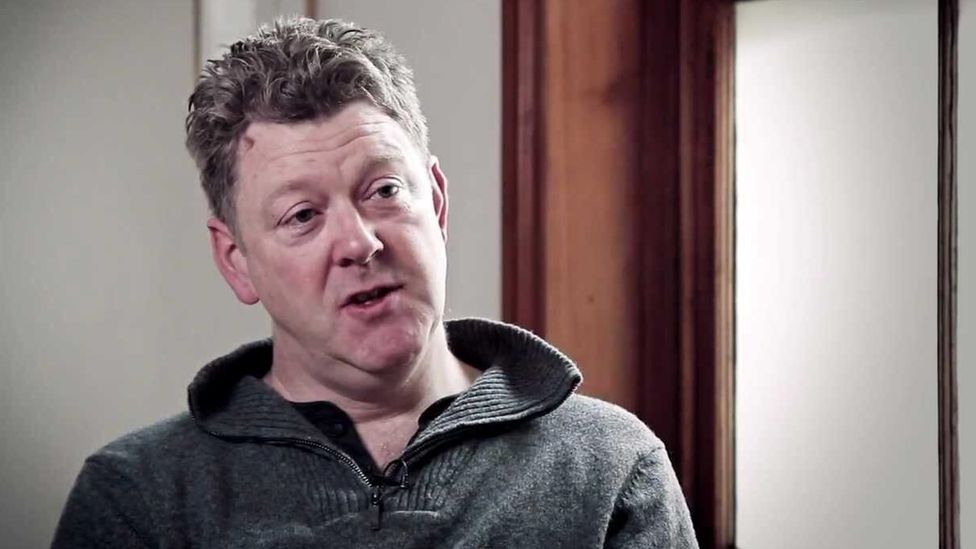Anti-slavery campaigner returns OBE over government's Rwanda scheme
- Published

An Armagh man who received an honorary OBE for services to the elimination of slavery has sent the honour back.
In a letter addressed to the prime minister, Rishi Sunak, Dr Aidan McQuade said it is "something which I can no longer, in good conscience, keep".
The government had rejected calls to exempt victims of modern slavery from the Rwanda scheme.
Dr McQuade criticised that move in his letter.
The former director of Anti-Slavery International confirmed he had returned the honour by post, earlier this week.
He told BBC News NI: "The letter has struck a nerve, a lot of people contacted me to say what you have said needed to be said."
"It is unconscionable that victims of trafficking are not protected," he added.
"The whole Rwanda scheme has been problematic.
"This was the final straw for me."
He said he wanted to raise the issue of trafficking victims in the UK and generally.
Dr McQuade, who received the honorary OBE (Officer of the British Empire) in 2017 said he had posted it back to the "office that sent it originally".
"Having been an Irish citizen, they posted it to me [in 2017], I was not at Buckingham Palace or the Foreign Office to receive it."
Dr McQuade, who is originally from south Armagh, but is now based in London as an independent consultant, published the letter on his blog this week.
"On 15 April 2024, your government refused to provide protections for the victims of modern slavery from your unconscionable 'Rwanda scheme'," he wrote.
"Over the past months you, as Prime Minister, have acquiesced in attacks on the European Convention on Human Rights by members of your parliamentary party.
"These, along with the UK's bipartisan position on Gaza, have put into sharp focus how British policy now distinguishes between people whose lives it values, and those whose lives it disdains.
"These represent a fundamental repudiation by the UK of the principles of the Universal Declaration of Human Rights.
"They are a rejection also of an enduring British human rights tradition stretching back to Thomas Clarkson, William Wilberforce, and Mary Wollstonecraft, and a longer tradition of rule of law that stretches back to Magna Carta."
The plan to send some asylum seekers to Rwanda has faced setbacks since it was first announced in April 2022 by Boris Johnson's government.
Earlier this week, the government rejected calls to exempt victims of modern slavery from the Rwanda scheme, instead proposing its own amendment that would provide an annual report on the impact of the policy on victims, which then passed in parliament.
In his letter, Dr McQuade said the government's moves "send to the whole world a message that the UK rejects the core bases of human rights and rule of law upon which progress in human dignity, including anti-slavery action has been based for hundreds of years".
"This can only impede the anti-slavery struggle and embolden other governments who seek to systematically abuse the rights of their subjects and citizens, including by the facilitation of their enslavement," he added.
"I hope that you will yet find it in your heart to alter course and embrace and defend these British traditions of human rights and rule of law rather than sacrifice them to some ill-judged populist crusade."
The government was approached for comment but declined.
No asylum seeker has yet been sent to Rwanda - a small landlocked country in central Africa - 4,000 miles (6,500km) from the UK.
The government is trying to pass new legislation to allow the scheme to go ahead, after the Supreme Court said the plans were unlawful.
Related Topics
- Published3 hours ago
- Published15 April